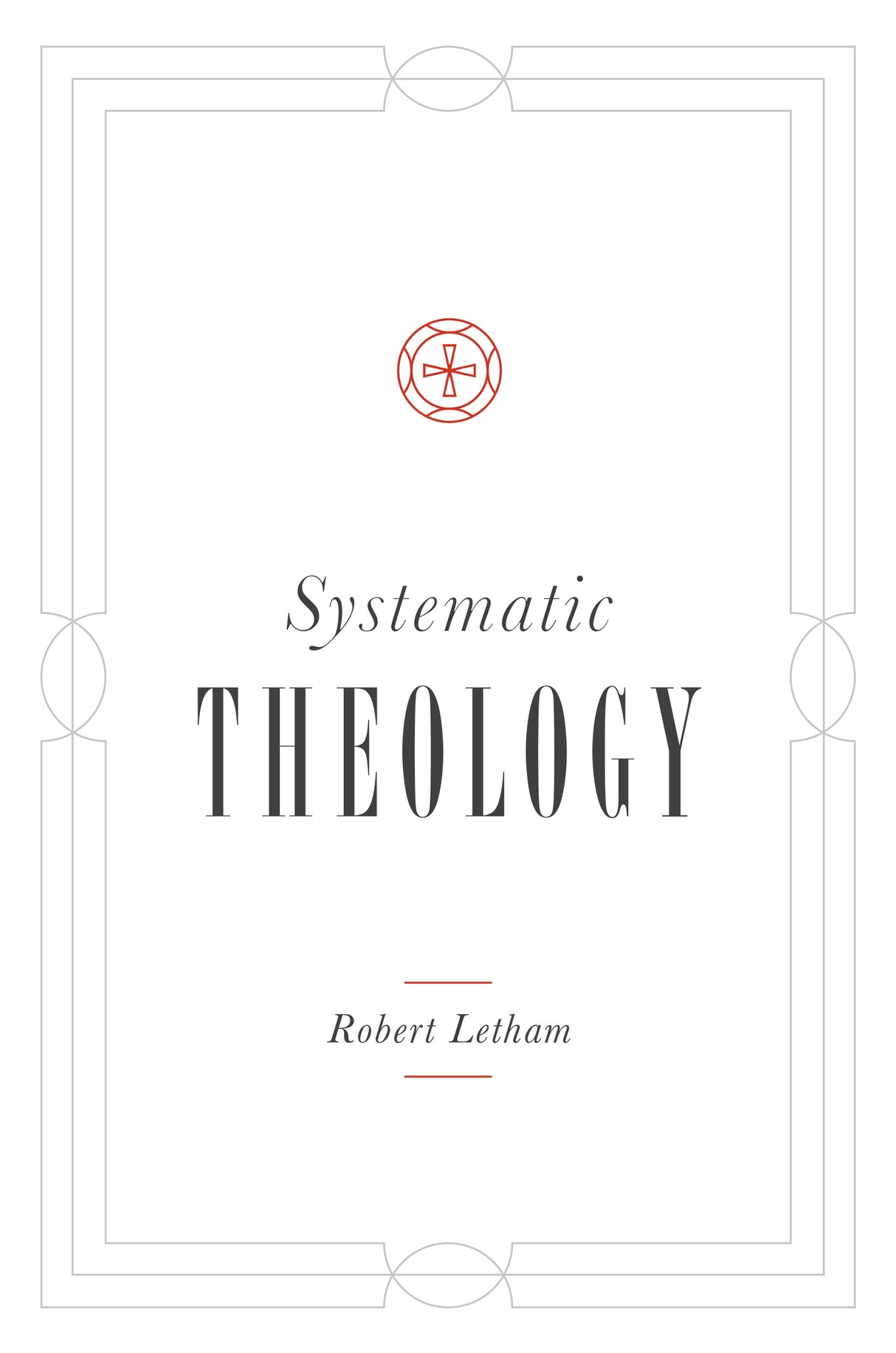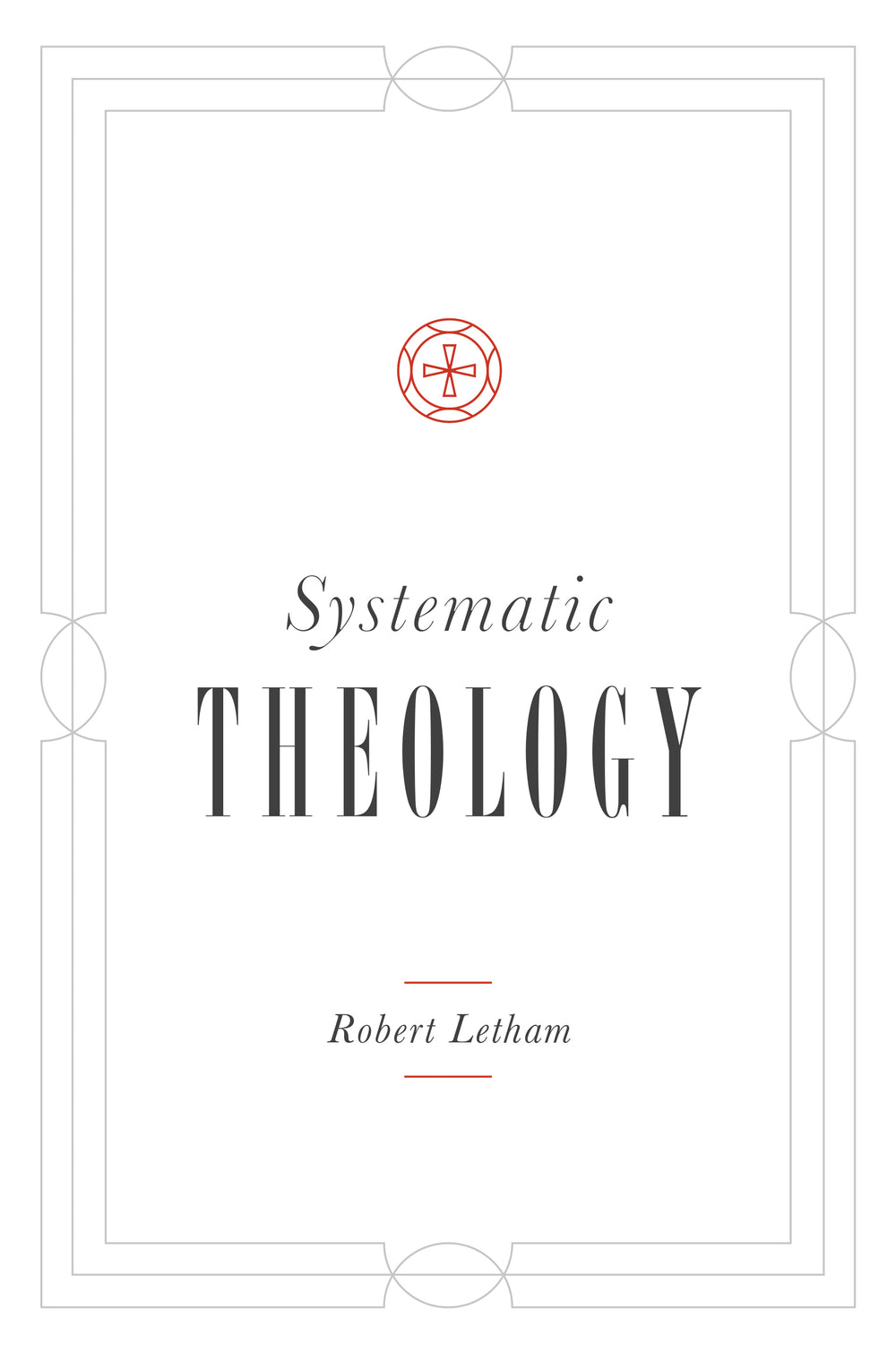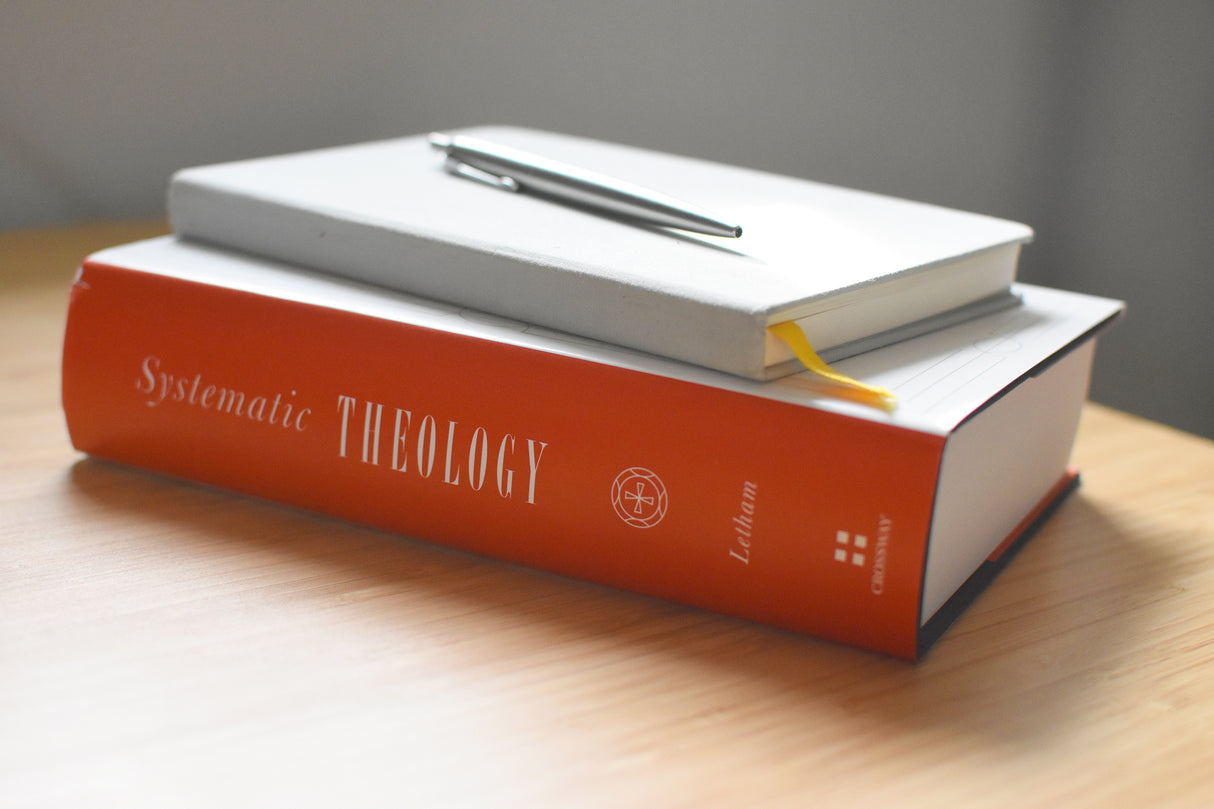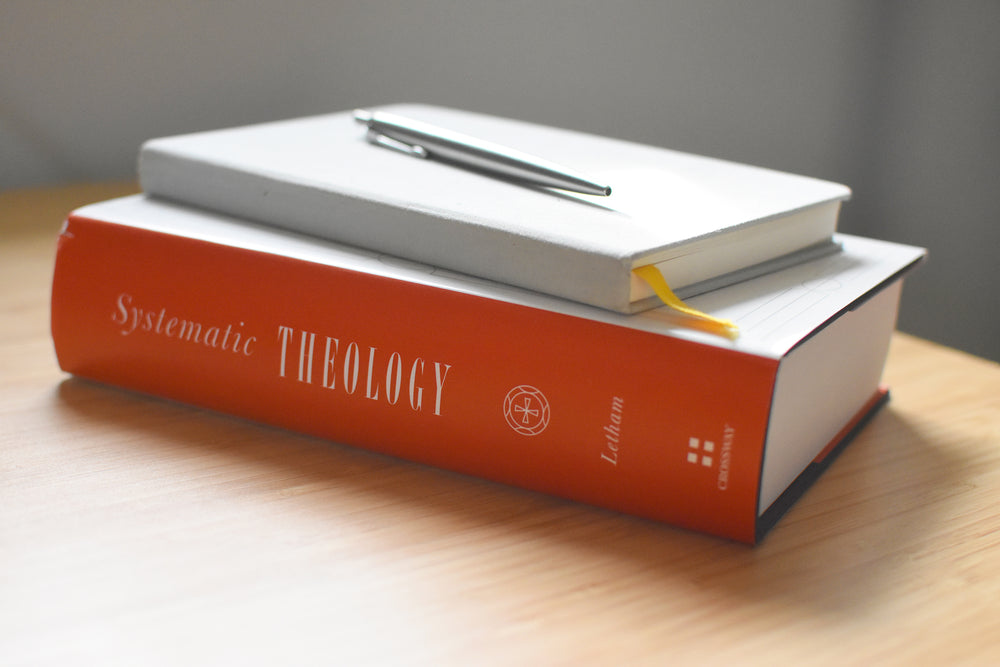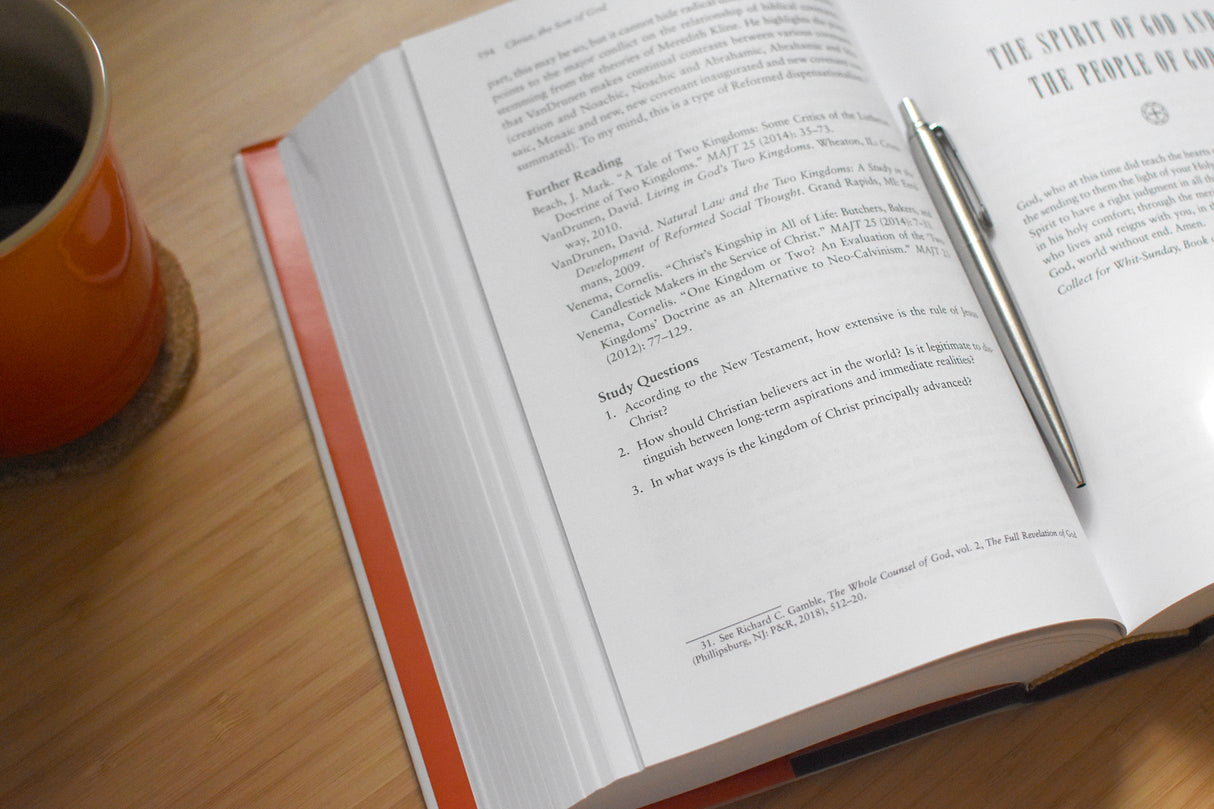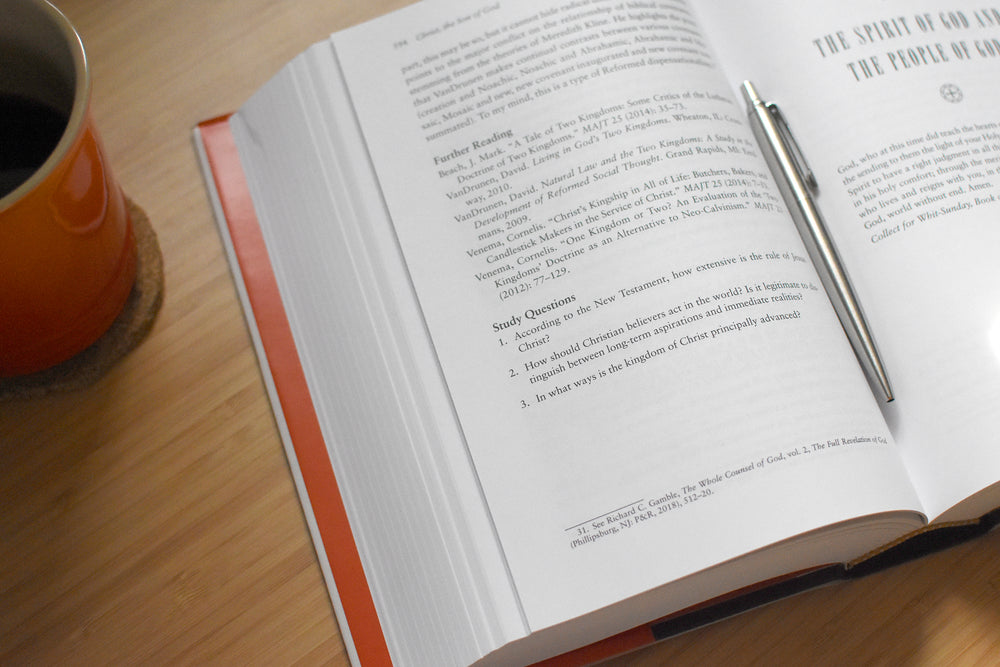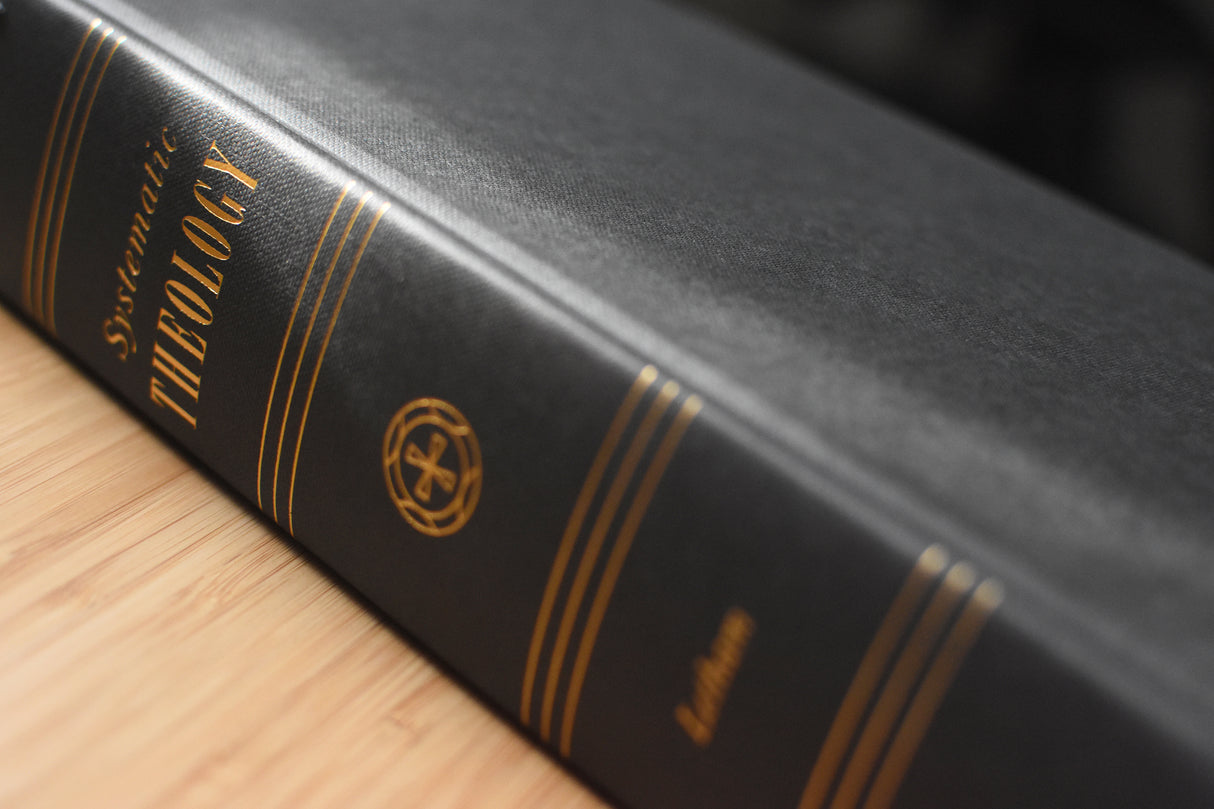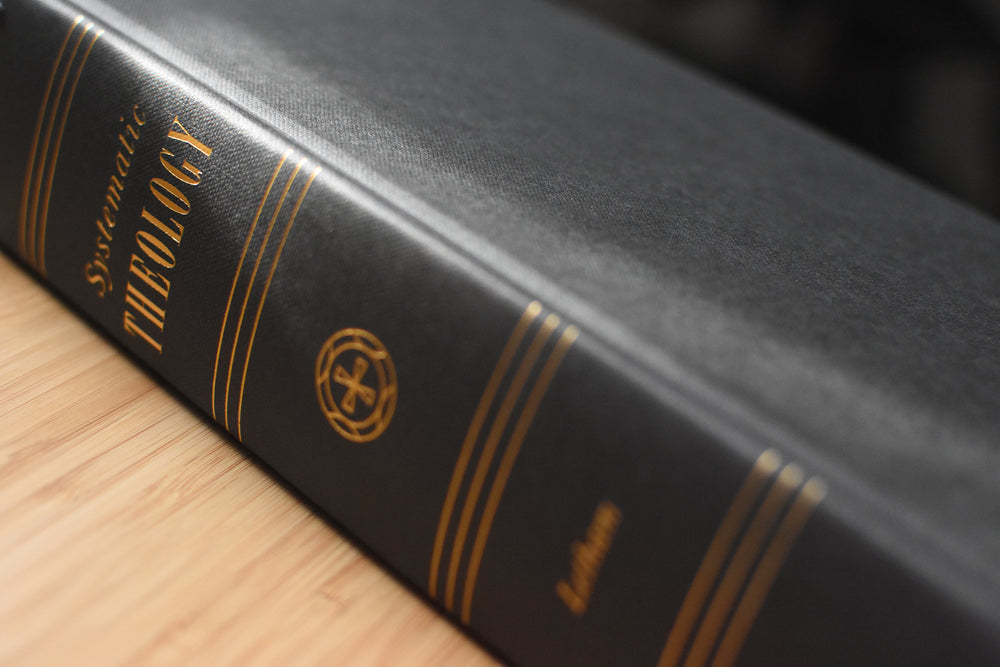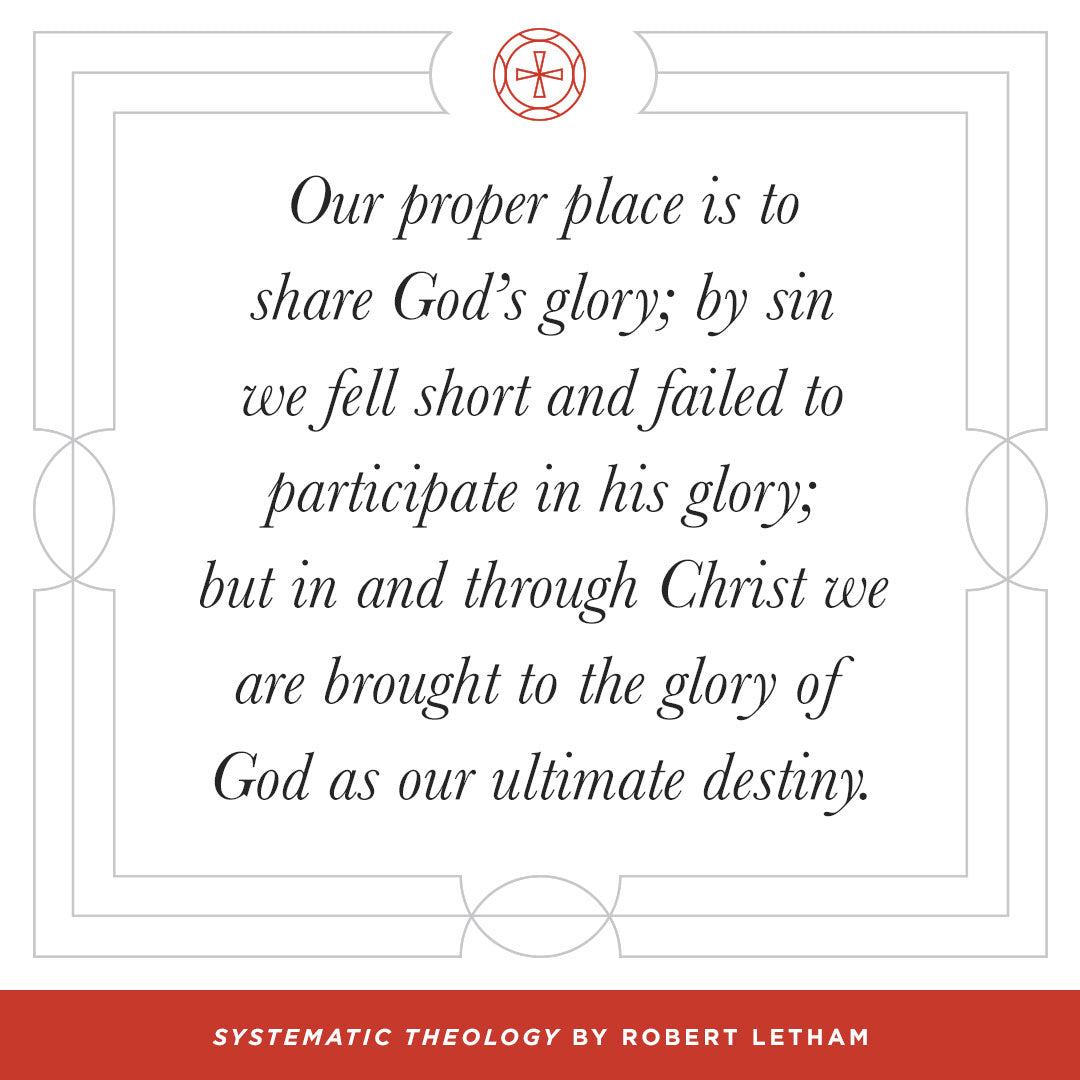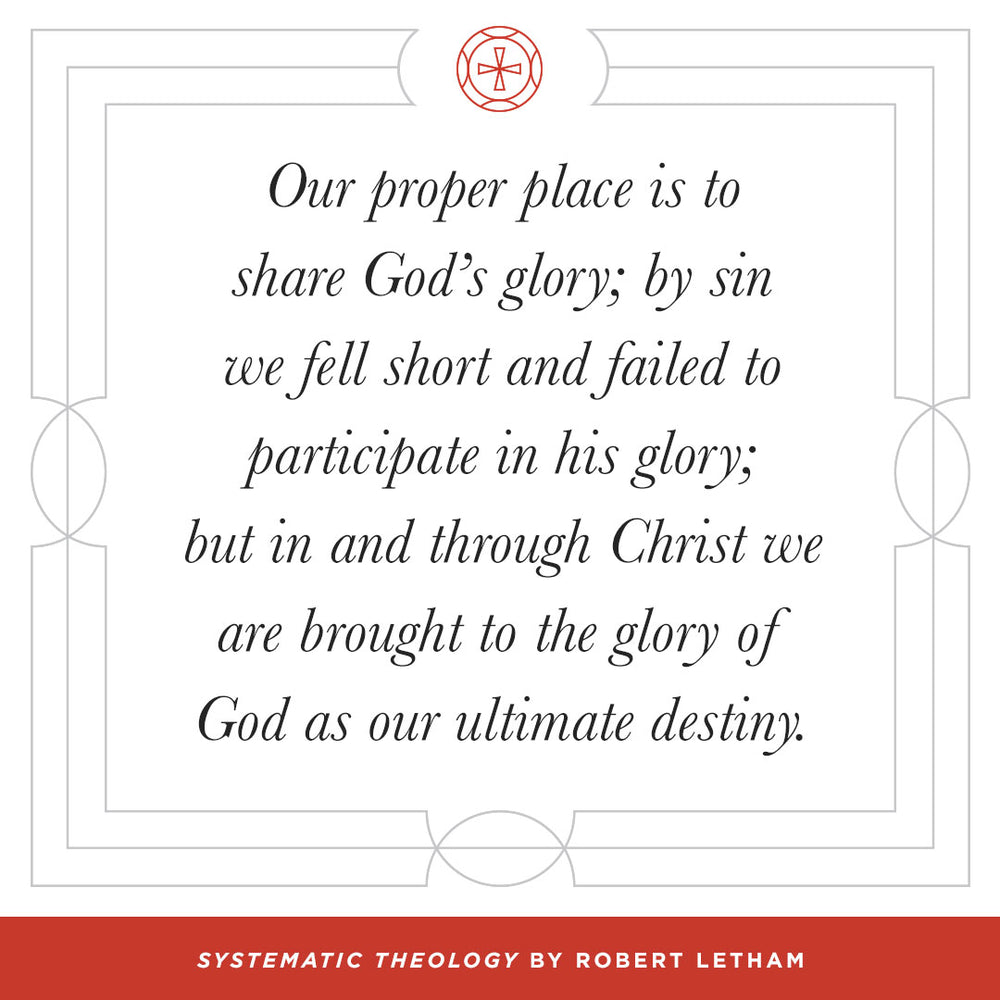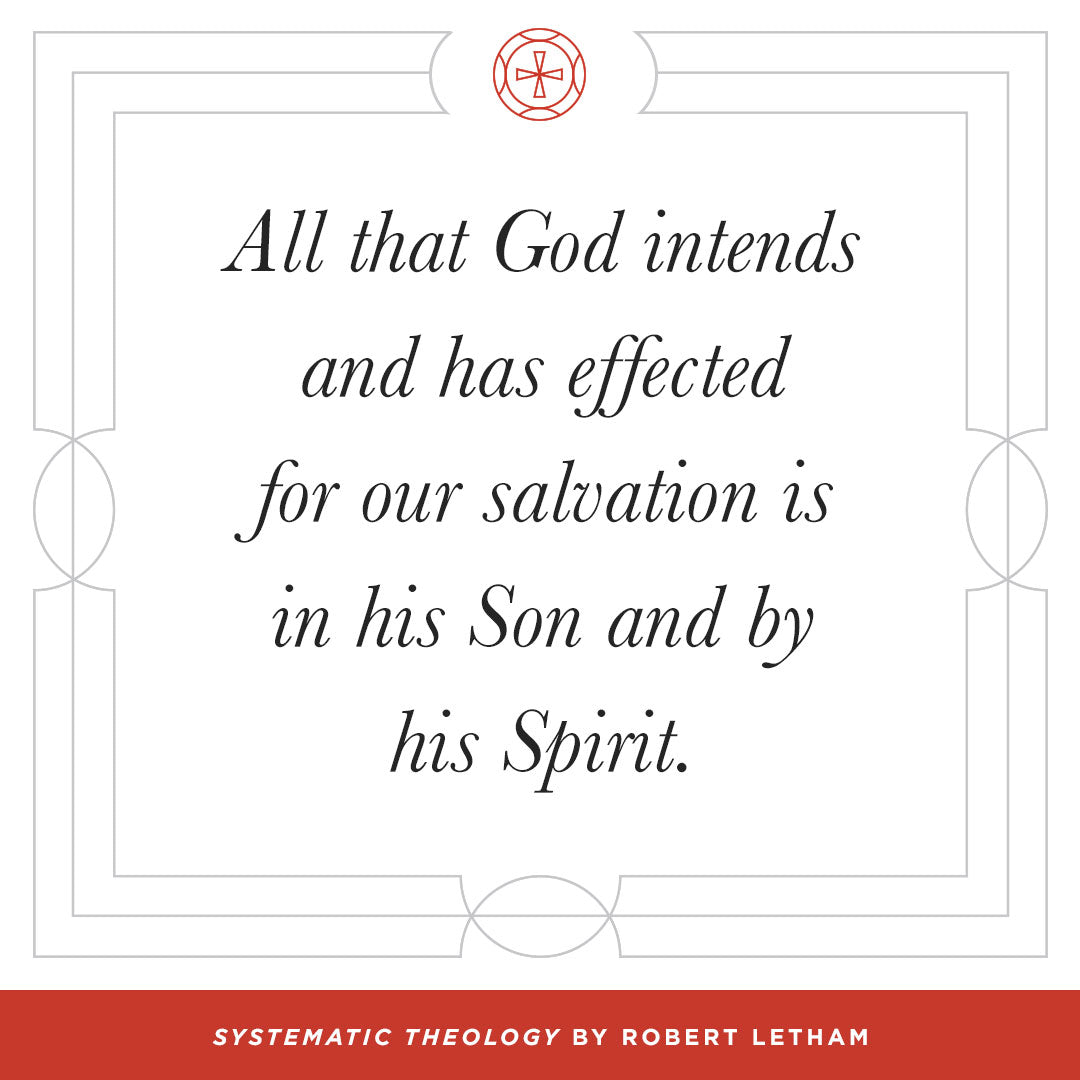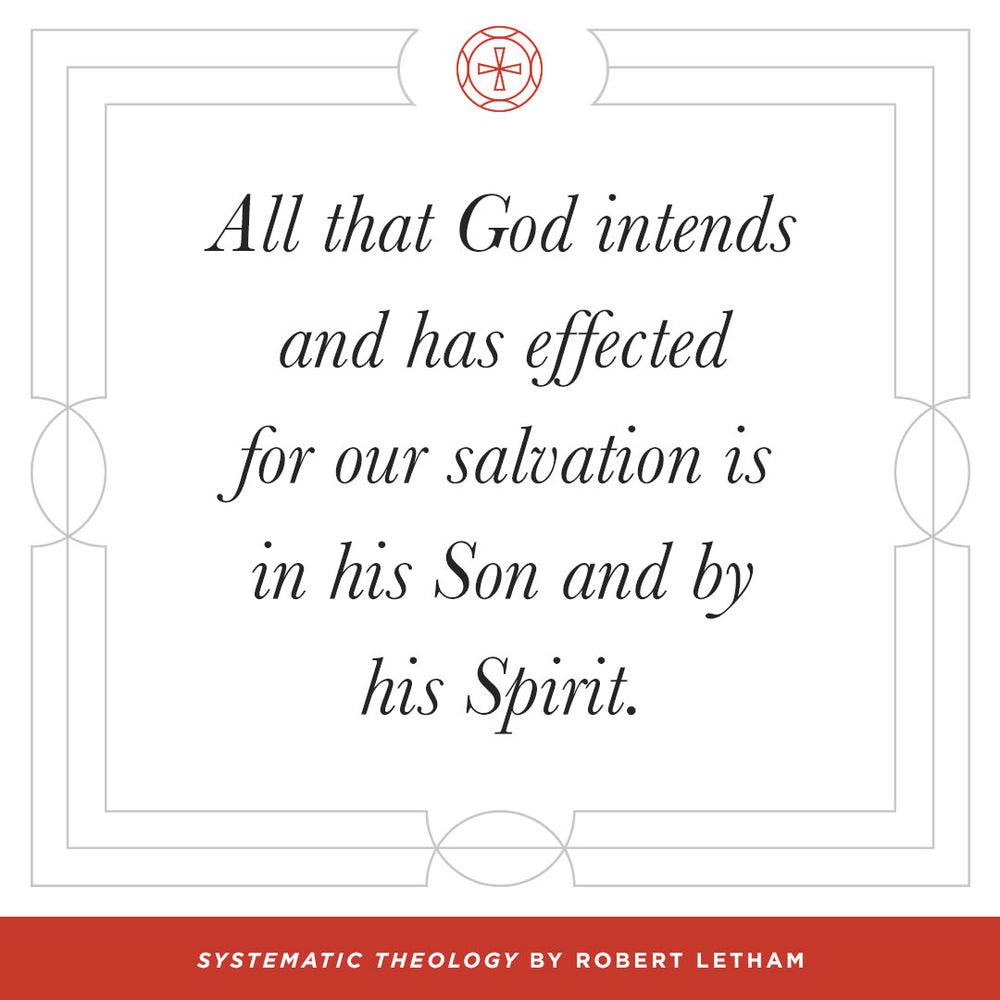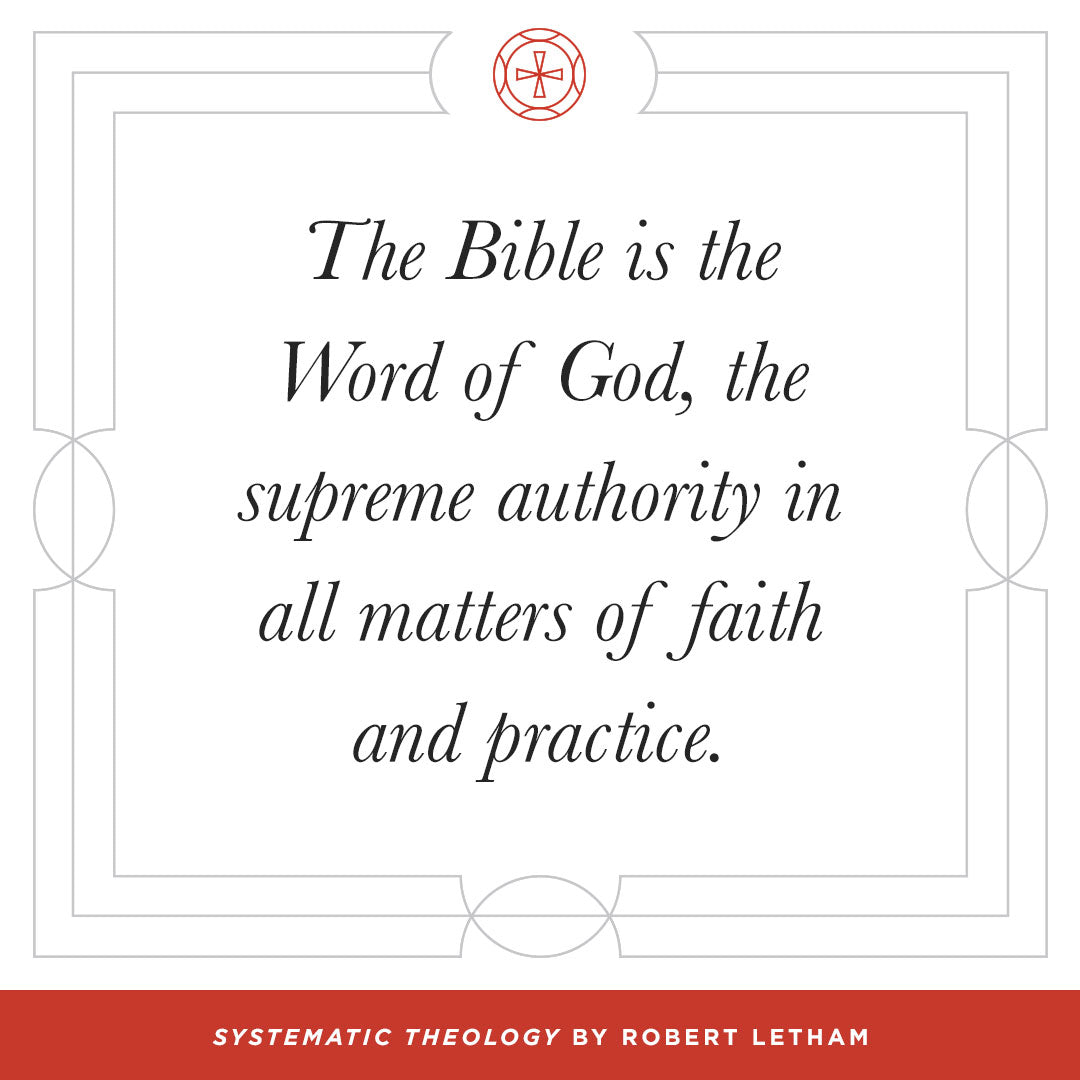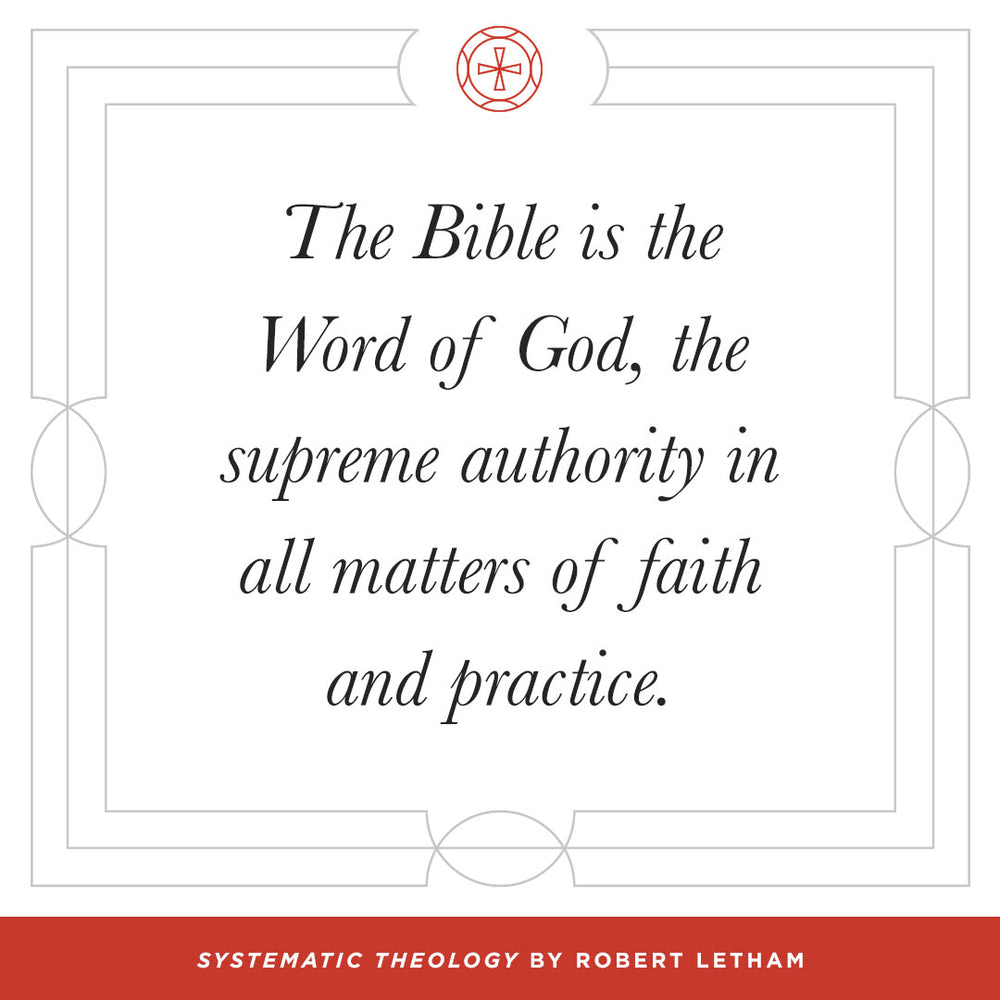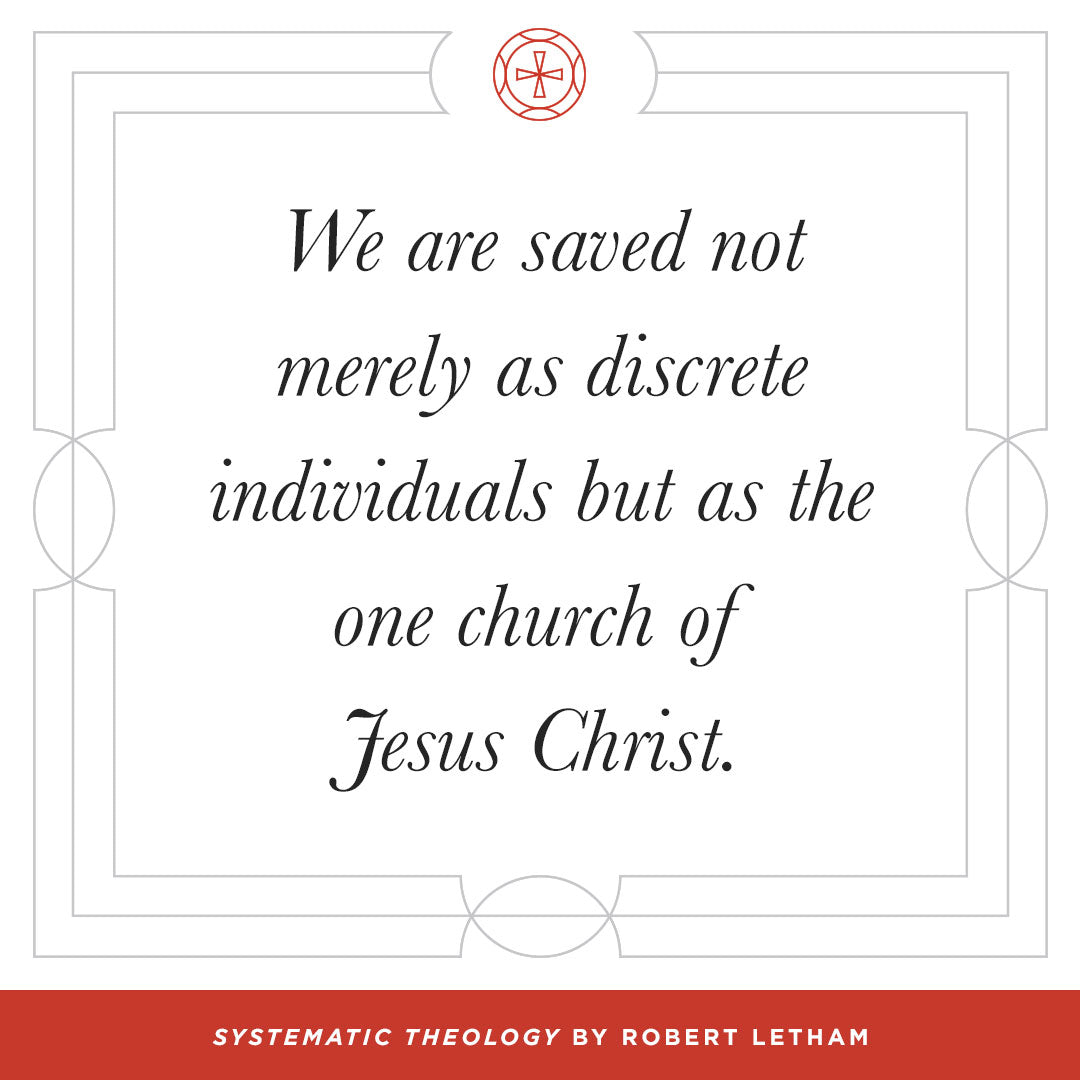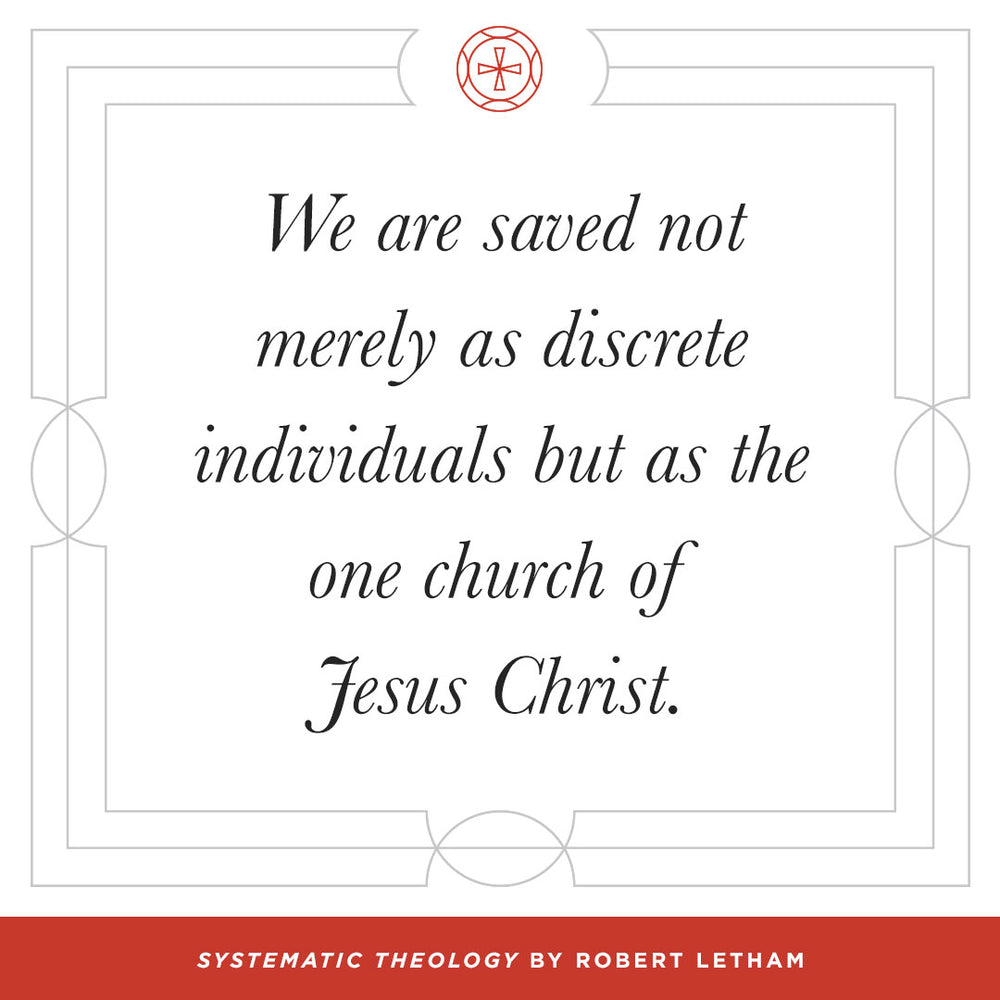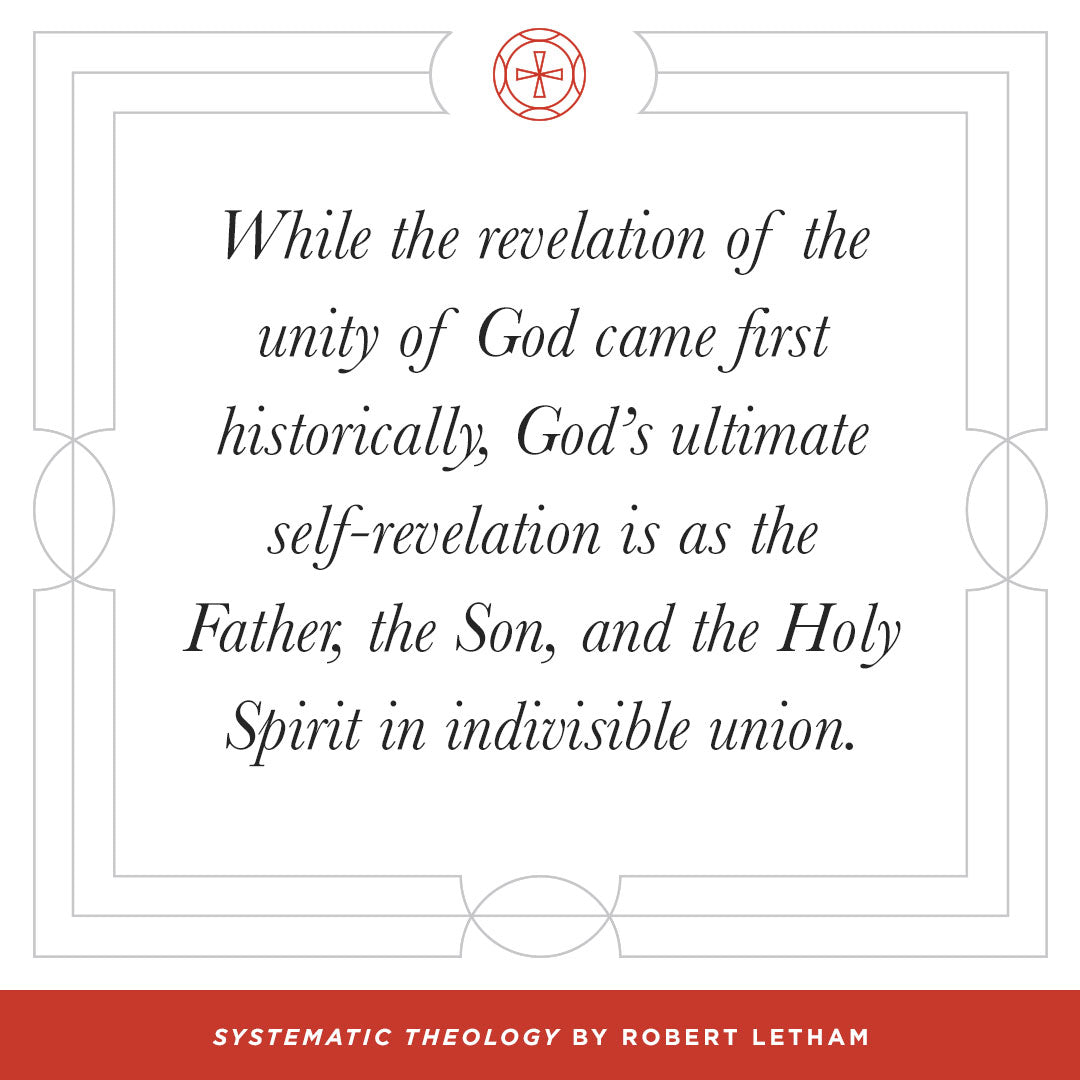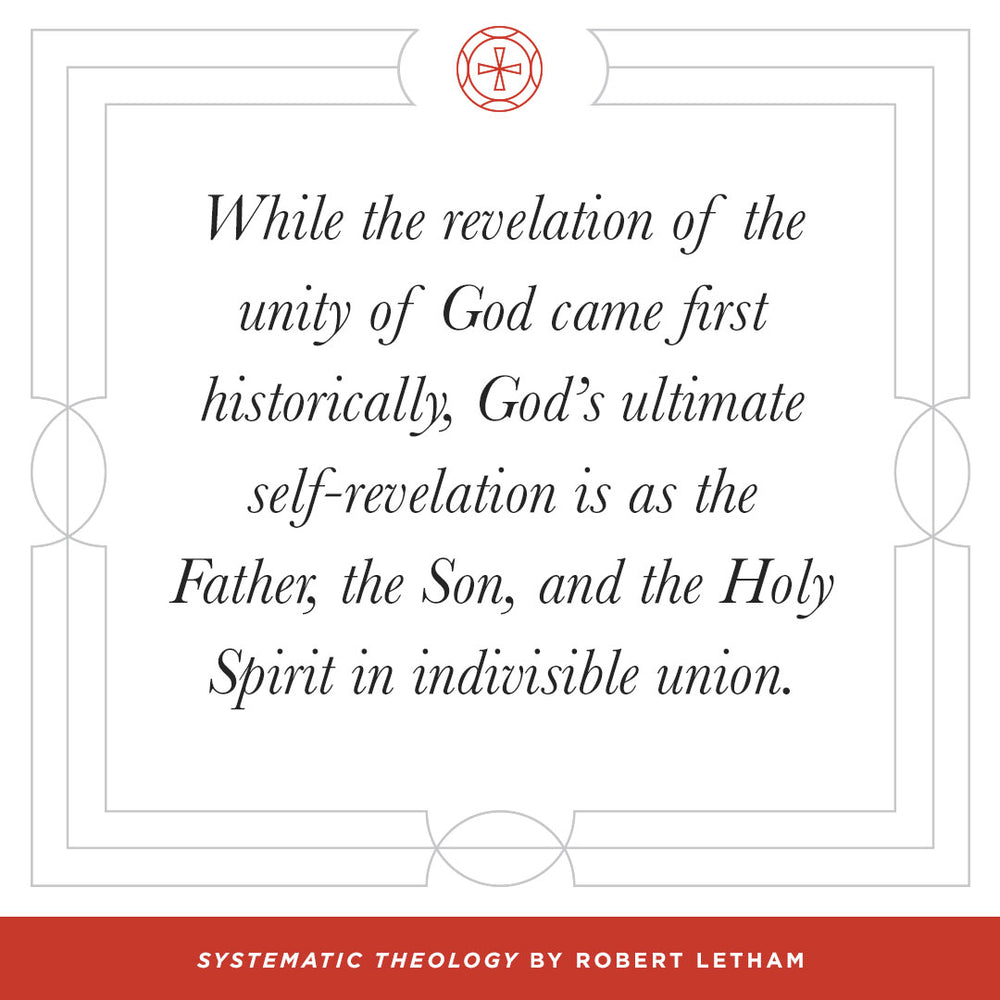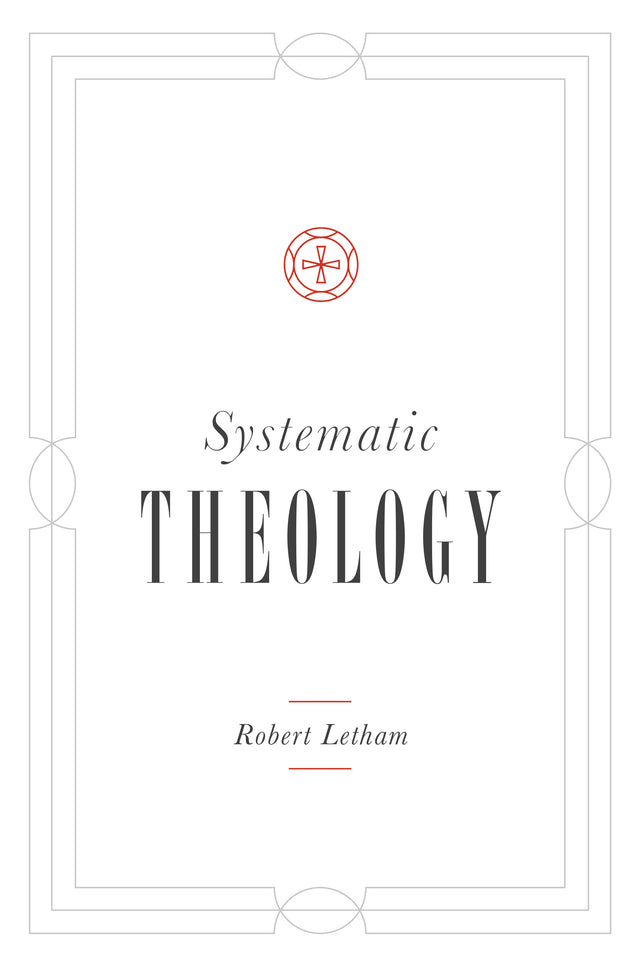Systematic Theology
Letham, Robert
This comprehensive systematic theology by a respected theologian covers the whole field of Reformed Christian doctrine from biblical, historical, and theological angles. It seeks to provide a clear and concise articulation of the Reformed faith rooted in the historic creeds while addressing current issues such as feminism, charismatic gifts, sexual ethics, environmentalism, other religions, the nature of truth, and civil liberties. Intended to be used as a textbook, this single-volume systematic theology is well-suited for our world today, interacting not only with the biblical text but also with the history of Christian doctrine, current cultural challenges to the Bible's teaching, and the daily experiences of regular Christians.

Interview with Robert Letham
(author of Systematic Theology and The Holy Trinity)
How long have you been working on this project, and why does the church need another Systematic Theology?
Letham: It took about five or six years to write but it was the product of thought and work over several decades.
Why does the church need another Systematic Theology? One could ask, why does it need another sermon, another Biblical commentary, or even another prayer? From one perspective, it helps to see different approaches to theology; it adds fresh perspectives. In a more focused way, there is an urgent need for the Reformed church to rediscover its roots in the one holy catholic and apostolic church. It has become increasingly turned in on itself and that can breed sterility and a sectarian outlook. Many recent systematic theologies concentrate on Biblical exposition but few, Douglas Kelly’s is an exception, are clearly rooted in informed historical conversation.
Who did you have in mind when you wrote your Systematic Theology, and how do you hope they approach using it?
Letham: I was thinking in terms of a spectrum, from scholars, students and ministers to laypeople who think and read. I ran draft chapters by other scholars but also by some ministers; the one person who read the entire manuscript before the editorial stage teaches physics here in Wales and has not had a formal theological education. I wanted to ensure that what I wrote and the way I wrote it is intelligible to as wide a range of readers as possible. That is because I maintain that the Bible was given to the church, not to the University, and so theology should be as accessible as possible.
You mention in your Systematic Theology that instead of dealing first with Scripture, you deal with God. Why do this, and why does the way we order a Systematic Theology matter?
Letham: This is because God is prior to the Bible. He is eternal, he was and is and ever shall be. He chose freely to create, to redeem, to reveal himself to us. Consequently, the drift of the book is from attention to the triune God, the living God who is life itself, to his Word, his works, humanity made in his image, and onwards.
WCF 1:1 speaks of God revealing himself and his will to the church and afterwards “for the better preserving and propagating of the truth and for the more sure establishment and comfort of the Church ... to commit the same wholly unto writing.” Hence, Scripture followed the works of God in revelation and redemption, although it is record of the same.
Since the rise of higher criticism, the church was forced on to the defensive and has felt the need to establish epistemological foundations for its testimony but this can tend to obscure the vital point that the works of God are subsequent to God. Moreover, in today’s world, when we say that the Bible is the Word of God we are begging the question of the identity of the God whose Word it is.
This order reflects the argument that God is life, evidenced by the eternal generation of the Son and the procession of the Holy Spirit. He gave humanity contingent life but Adam opted for death. Redemption entails our being given to share in Christ in the life of God, sin and its consequences having been conquered.
One of the ways your work is unique is how you think about the connection between salvation and the doctrine of the church. Why is this a neglected theme in other theology texts and why does it need to be recovered?
Letham: I think it is the result of the individualism in the West, induced by the Enlightenment but evident in some ways before that. As a consequence, this has seeped into the church and so in Protestantism individual salvation comes first with the church, its preaching, and the sacraments tacked on afterwards. In contrast Rome, in the Catechism as one example, works in reverse; things like justification are not nearly as significant for it as they are for Protestants and it is those elements that are tacked on later. The genius of Reformed Christianity, seen in its doctrine of the covenant, is that the church and the individual go together. In the Bible a person is seen in relation to their connections – A the son of B the son of C of the tribe of D and so forth. The preaching of the Word and the sacraments are integral to the application of redemption and so I have long thought that they should be considered together – as the apostles did when they included baptism in their evangelistic appeals.
Much of your theology also makes use of historical figures in the history of the church. What makes your theology “systematic” and how is it different from doing a historical project?
Letham: It’s not an historical theology, since the organization is clearly systematic. It follows a logical and theological order rather than an historical one. It’s more an exercise in ressourcement, a retrieval of the sources. Theology should not be simply an exercise in Biblical exegesis, although that is a crucial and foundational part of it. It is, in effect, the inter-relationship of the collective entailments of Scripture, in its whole as well as its parts, considered on theoretical and meta-theoretical levels, in interaction with the collective wisdom of other voices, past and present. Calvin constantly backed up his comments with reference to the Fathers and medievals. The debates at the Westminster Assembly, pervaded by exegesis of Biblical texts, were also replete with copious references to leading figures, patristic, medieval and recent. It is futile to try to reinvent the wheel. We build on the heritage of the church, critically but appreciatively. The ways the Spirit has enlightened others must not be neglected.
What were some of your favorite theological texts that have shaped your ministry as a pastor, author, and teacher?
Letham: There are far too many to note here. The Bible, Calvin’s Institutes (never leave home without a copy), I could go on and on ...
-
Cover Type
-
ISBN
-
Page Count
-
Publisher
-
Publication Date
